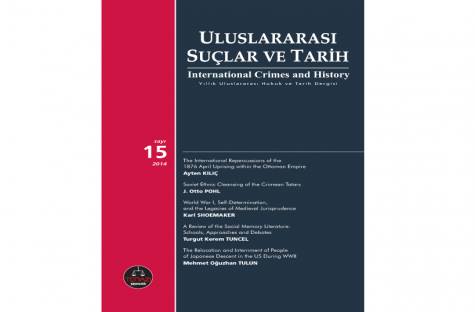
Call for Papers
International Crimes and History - Annual Bilingual (English and Turkish) Peer-Reviewed Journal
Special Issue: Crimean Tatars under Russian Imperial and Soviet Rules
Guest Editor: Dr. Hüseyin Oylupınar
Managing Editor: Dr. Turgut Kerem Tuncel
International Crimes and History (ICH) is an annual peer-reviewed journal dedicated to the study of inter-communal, inter-ethnic, inter-religious and international conflicts and crimes that took place in the past. For nine years of its publication, the ICH has been a platform for the scholarly investigation of conflicts and crimes registered in the Balkans, the Caucasus, the Eurasia Region, and the Middle East. The ICH is indexed in the Scientific and Technological Research Council of Turkey-Turkish Academic Network and Information Center (TUBİTAK-ULAKBİM).
With this special issue, the ICH will expand its coverage to topics related to Russian Imperial and post-Soviet spaces and its upcoming 16th issue will be devoted to the study of the Crimean Tatar history under Russian imperial rule and the USSR.
Just like its recent annexation by the Russian Federation in 2014, annexation of Crimea in 1783 by the Russian Empire was a violation of the international order set by the Küçük Kaynarca Agreement (1774) that secured the integrity of the Crimean Khanate. The period between the annexation of Crimea and the collapse of the Tsarist Russia proved difficult for the Crimean Tatars. Colonization of the Crimean Peninsula by other ethnic groups and further troubles that Crimean Tatars encountered such as gradual exclusion from the urban life, dehumanization by the Russian imperial elite, loss of control over the land, denial of the opportunity to be represented in governmental offices, and the continual exodus from the Crimean Peninsula had been the burdensome circumstances that the Crimean Tatars found themselves trapped in.
The Crimean Tatar experience under the Soviets was, too, proved to be a difficult one. Initially, the Soviets gave assurances for national self-determination and protection of Muslim religious rites to gain support of the masses. However, before long protection of national and religious life and the principle of self-determination were exchanged for the primacy of the establishment of the ‘Proletariat Dictatorship’. Soviet-style ‘Tatarization’ policies were renounced and that was followed by purges. The 1944 deportation of the Crimean Tatars destroyed completely the Crimean Tatar life in the Crimean Peninsula, while leaving thousands perished on the way and after arrival to locations of exile.
On the whole, for the Crimean Tatars the last two-centuries meant a long interval of exclusion, exile, discrimination and marginalization. The very recent events in Ukraine, particularly annexation of Crimea by the Russian Federation indicate that the fate of the Crimean Tatars is likely to be a complicated one.
Russian annexation of Crimea in 2014 has amplified the interest of the research community and policy-makers on the Crimean Tatars. However, interpretations on the fate of the Crimean Tatars following the crisis in Ukraine usually overlook the legacies of the Russian Imperial and Soviet pasts. Ignoring the legacy of the past partially conditioned by the absence of deep knowledge on the history of the Crimean Tatars results in imperfect analyses.
Based on this observation, we invite papers that focus on the history of Crimea and the Crimean Tatars between 1783 (annexation of Crimea by Imperial Russia) and 1991 (collapse of the Soviet Union) and examine legal, administrative, social, economic and political practices that have resulted in social, cultural and economic destruction of the Crimean Tatar lives. Reviews of recently published books on the subject are also welcomed.
Deadline for manuscript submissions: 15 December 2015.
For notes for contributors, see below.
Guest Editor: Dr. Hüseyin Oylupınar
Dr. Huseyin Oylupinar gained his interdisciplinary PhD degree in History and Cultural Studies at the University of Alberta in 2014. Dr. Oylupınar was a guest researcher at the Ukrainian Academy of Sciences. He has been offered a fellowship in 2013 at the New Europe College in Bucharest to conduct a research on interethnic relations of Crimean Russians and Crimean Tatars in Crimea. He has been also a fellow at the Inter-Ethnic and Cross-Cultural Relations Research Center in Dnipropetrovsk–Ukraine (December 2014–June2015).
Currently, Dr. Oylupınar is a researcher a guest lecturer of International Relations at the Izmir University of Economics and starting from September 2015 he is assigned as the Mihaychuk Fellow at the Harvard Ukrainian Research Institute. His recent research examines Ukrainian-EU relations, Russian-EU relations, Ukrainian-Turkish Relations, the state of Crimean Tatars after Russian annexation of Crimea in 2014, and Crimean Tatars under the Russian Empire.
Email: oylupina@ualberta.ca
Managing Editor: Dr. Turgut Kerem Tuncel
Dr. Turgut Kerem Tuncel gained his PhD degree in Sociology and Social Research from Università degli Studi di Trento in 2014. During his doctoral studies, he had been a pre-doc visiting scholar at Michigan University, Ann Arbor Armenian Studies Program. Dr. Tuncel worked as research/teaching assistant at Bilkent University and Istanbul Bilgi University between 2001 and 2009. He is currently an expert at the Center for Eurasian Studies (AVİM), an Ankara-based thinking-tank studying the current geopolitics of the Eurasian region.
Email: tuncel@avim.org.tr
tel: +90 312 438 50 24
Notes for Contributors
- Manuscripts should be submitted via email to both Dr. Hüseyin Oylupınar (oylupina@ualberta.ca) and Dr. Turgut Kerem Tuncel (tuncel@avim.org.tr).
- Manuscripts should be in English or in Turkish.
- Manuscripts should be word processed using Microsoft Word.
- Manuscripts should be 12 point font, Times New Roman, and 1,5 spaced throughout allowing good (1-1/2 inch) margins. Pages should be numbered sequentially.
- International Crimes and History adheres to the Chicago reference style.
- All manuscript submissions should include
- Full name(s) of the author(s)
- Short biographical note(s) about the author(s)
- Professional position(s) of the author(s)
- Current department and institutional affiliation(s) of the author(s)
- Email(s) of the author(s)
- Full address(es)/phone(s)/fax details of the author(s)
- The Editors welcome the submission of manuscripts as Main Articles and Book Reviews.
- Main Articles should be 7,000–9,000 words including footnotes and bibliography. They should include an abstract between 150–200 words and 4–6 keywords (in alphabetical order, suitable for indexing. Ideally, these words should not have appeared in the title).
- There should be a clear hierarchy of headings and subheadings.
- Quotations more than 40 words should be indented from both the left and right margins and single-spaced.
- Book Reviews should be 1000 - 1,500 words including footnotes on recently published books on related subjects. Book Reviews should have a title. The details of the book under review should be listed with the following details:
- Author(s) or Editor(s) first and last name(s) of the book under review.
- Title of book
- Year of publication
- Place of publication
- Publisher
- Number of pages
- Language of the book
- Price (please indicate paperback or hard cover) if available.
- The editorial office will make every effort to deal with manuscript submissions as quickly as possible. All papers will be acknowledged on receipt by email.
© 2009-2025 Center for Eurasian Studies (AVİM) All Rights Reserved
No comments yet.
-
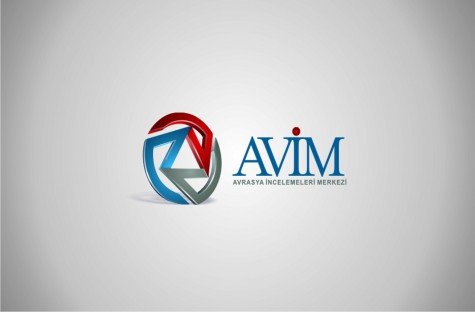 A RUSSIAN SOLDIER’S MULTIPLE KILLINGS IN ARMENIA
A RUSSIAN SOLDIER’S MULTIPLE KILLINGS IN ARMENIA
Turgut Kerem TUNCEL 19.01.2015 -
 "RUSSIA USING the ‘ARMENIAN CARD’" - COMMENTARY PUBLISHED IN HURRIYET DAILY NEWS
"RUSSIA USING the ‘ARMENIAN CARD’" - COMMENTARY PUBLISHED IN HURRIYET DAILY NEWS
Turgut Kerem TUNCEL 01.12.2015 -
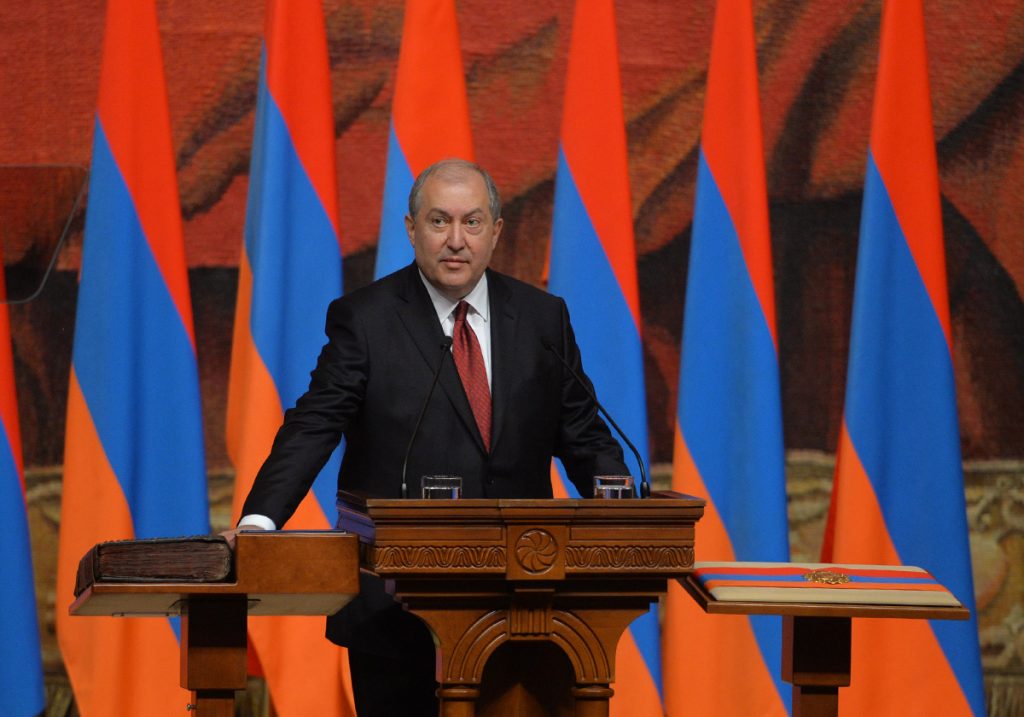 THE INAUGURATION SPEECH OF THE NEWLY ELECTED ARMENIAN PRESIDENT ARMEN SARKISSIAN: MORE OF THE SAME IDEOLOGICAL OUTLOOK
THE INAUGURATION SPEECH OF THE NEWLY ELECTED ARMENIAN PRESIDENT ARMEN SARKISSIAN: MORE OF THE SAME IDEOLOGICAL OUTLOOK
Turgut Kerem TUNCEL 17.04.2018 -
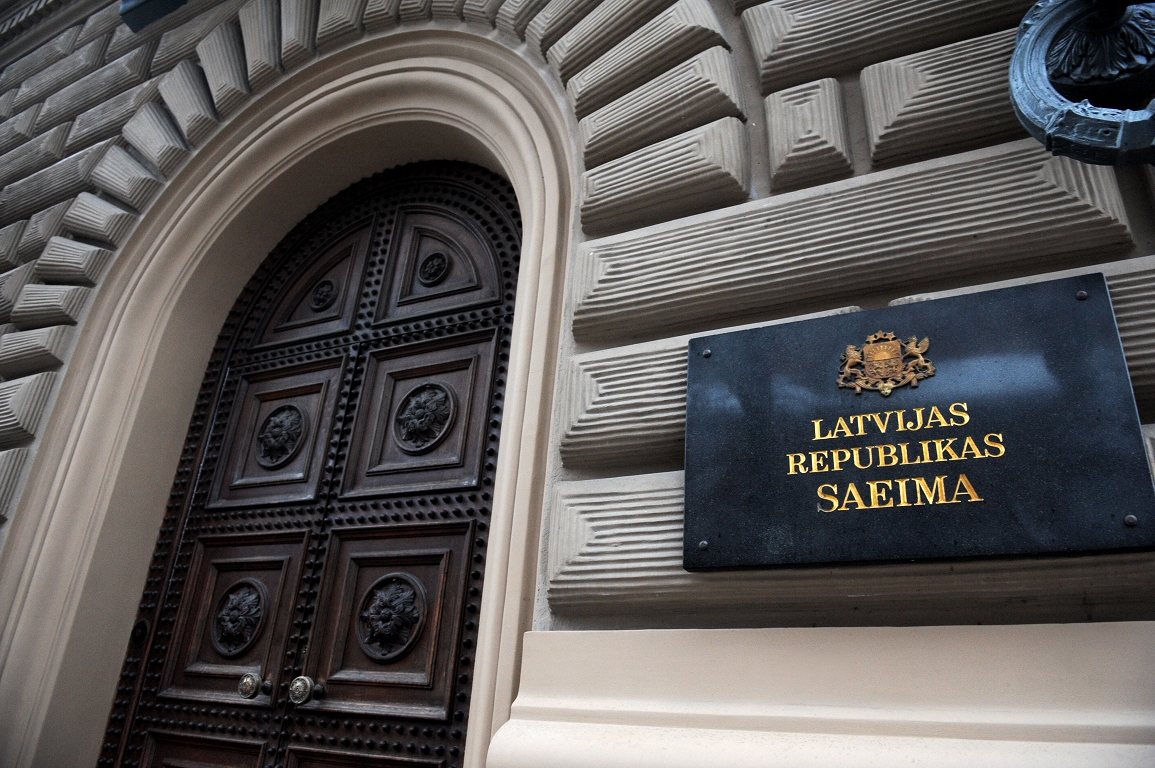 THE NEW KID ON THE BLOCK: LATVIAN PARLIAMENT’S RECOGNITION OF THE ‘ARMENIAN GENOCIDE’
THE NEW KID ON THE BLOCK: LATVIAN PARLIAMENT’S RECOGNITION OF THE ‘ARMENIAN GENOCIDE’
Turgut Kerem TUNCEL 18.05.2021 -
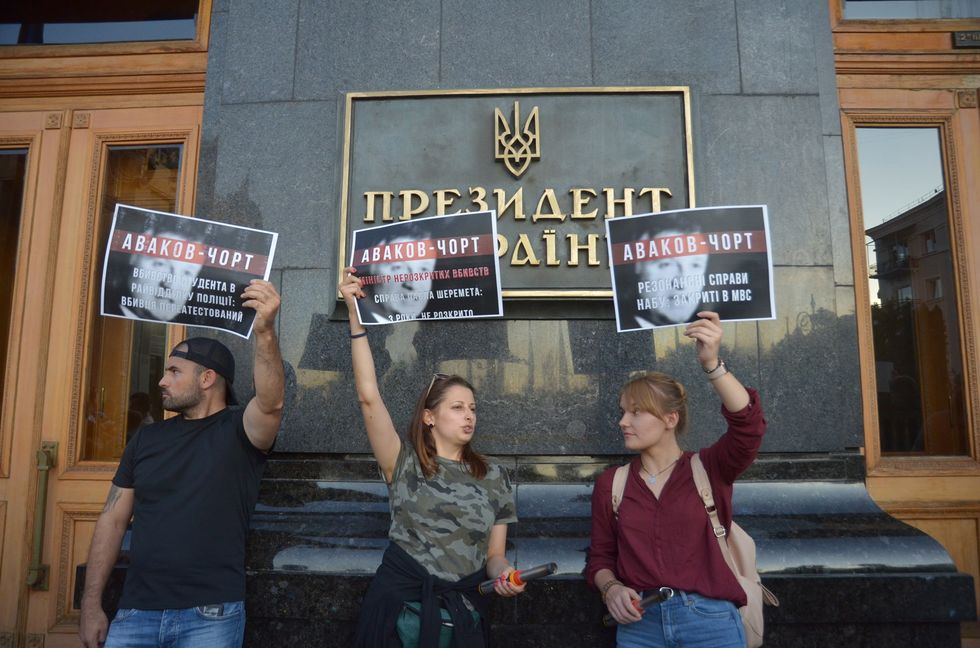 THE ‘ARMENIAN QUESTION’ IN UKRAINE - II: THE ADVOCATES OF THE ‘ARMENIAN CAUSE’ IN UKRAINE
THE ‘ARMENIAN QUESTION’ IN UKRAINE - II: THE ADVOCATES OF THE ‘ARMENIAN CAUSE’ IN UKRAINE
Turgut Kerem TUNCEL 10.05.2021
-
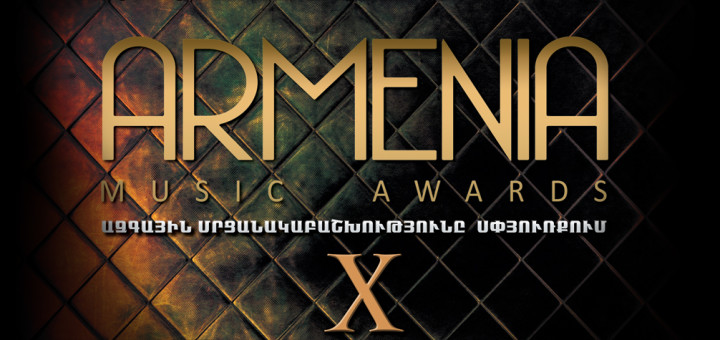 THE PRESENT-DAY SOURCES OF ARMENIAN ALLEGATIONS AND PREJUDICES AGAINST TURKS
THE PRESENT-DAY SOURCES OF ARMENIAN ALLEGATIONS AND PREJUDICES AGAINST TURKS
Osman GÜN 01.04.2016 -
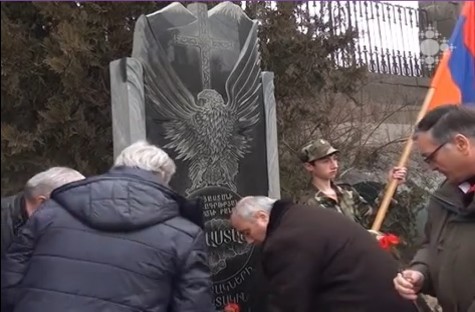 ARMENIA AND THE VENERATION OF TERRORISTS
ARMENIA AND THE VENERATION OF TERRORISTS
Mehmet Oğuzhan TULUN 19.05.2015 -
ARMENIAN PROPERTIS II
Ömer Engin LÜTEM 21.12.2010 -
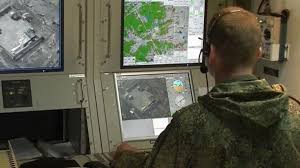 TURKISH RUSSIAN JOINT MONITORING CENTER BECAME OPERATIONAL AT AGHDAM
TURKISH RUSSIAN JOINT MONITORING CENTER BECAME OPERATIONAL AT AGHDAM
Tutku DİLAVER 17.02.2021 -
FORTRESS EUROPE CLOSES RANKS
Alev KILIÇ 21.02.2013
-
25.01.2016
THE ARMENIAN QUESTION - BASIC KNOWLEDGE AND DOCUMENTATION -
12.06.2024
THE TRUTH WILL OUT -
27.03.2023
RADİKAL ERMENİ UNSURLARCA GERÇEKLEŞTİRİLEN MEZALİMLER VE VANDALİZM -
17.03.2023
PATRIOTISM PERVERTED -
23.02.2023
MEN ARE LIKE THAT -
03.02.2023
BAKÜ-TİFLİS-CEYHAN BORU HATTININ YAŞANAN TARİHİ -
16.12.2022
INTERNATIONAL SCHOLARS ON THE EVENTS OF 1915 -
07.12.2022
FAKE PHOTOS AND THE ARMENIAN PROPAGANDA -
07.12.2022
ERMENİ PROPAGANDASI VE SAHTE RESİMLER -
01.01.2022
A Letter From Japan - Strategically Mum: The Silence of the Armenians -
01.01.2022
Japonya'dan Bir Mektup - Stratejik Suskunluk: Ermenilerin Sessizliği -
03.06.2020
Anastas Mikoyan: Confessions of an Armenian Bolshevik -
08.04.2020
Sovyet Sonrası Ukrayna’da Devlet, Toplum ve Siyaset - Değişen Dinamikler, Dönüşen Kimlikler -
12.06.2018
Ermeni Sorunuyla İlgili İngiliz Belgeleri (1912-1923) - British Documents on Armenian Question (1912-1923) -
02.12.2016
Turkish-Russian Academics: A Historical Study on the Caucasus -
01.07.2016
Gürcistan'daki Müslüman Topluluklar: Azınlık Hakları, Kimlik, Siyaset -
10.03.2016
Armenian Diaspora: Diaspora, State and the Imagination of the Republic of Armenia -
24.01.2016
ERMENİ SORUNU - TEMEL BİLGİ VE BELGELER (2. BASKI)
-
AVİM Conference Hall 24.01.2023
CONFERENCE TITLED “HUNGARY’S PERSPECTIVES ON THE TURKIC WORLD"









